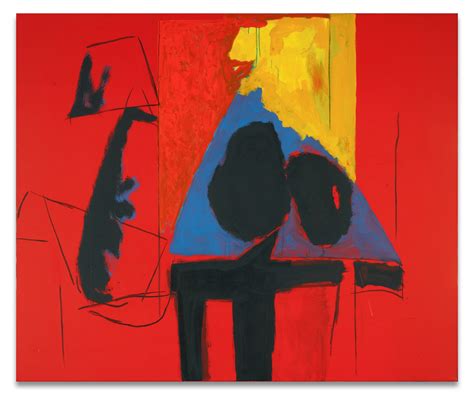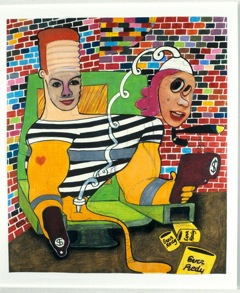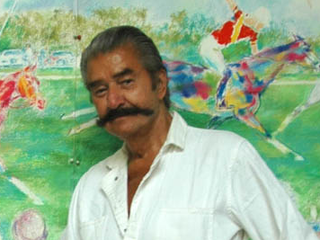A Quote by Jerry Saltz
Abstract Expressionism - the first American movement to have a worldwide influence - was remarkably short-lived: It heated up after World War II and was all but done for by 1960 (although visit any art school today and you'll find a would-be Willem de Kooning).
Related Quotes
I remember being a 12 year old art kid and feeling like there was no exciting art movement happening, especially for somebody like me. I was looking around for artistic inspiration and could find nothing — until my older brother’s friend brought a Giger book over to the house. Upon seeing the first image I knew I would never be the same. A whole new world opened up to me and I have been exploring it ever since. It’s no doubt that I would not be here today, doing what I do, without his influence. H.R. Giger is the king of the Dark Art movement.
When I was going to school and under the influence of Abstract Expressionism, I believed that if you had a give-and-take rapport with your work that it would be you, and that would be all that was required. It would be honest, and the core of your personality would come out if you responded to position and contrasts in your work.
In an all-out nuclear war, more destructive power than in all of World War II would be unleashed every second during the long afternoon it would take for all the missiles and bombs to fall. A World War II every second-more people killed in the first few hours than all the wars of history put together. The survivors, if any, would live in despair amid the poisoned ruins of a civilization that had committed suicide.
It's very important to understand that World War II is at the base of this new policy. From the 1890s on, the U.S. was always imperialistic. We went after the Philippines, and we did the same in Cuba, in Hawaii. We controlled South America. Woodrow Wilson was not what he was supposed to be. He was very much a white man first. "The world must be made safe for democracy." It really accelerates after World War II.
On healthcare we are the prisoner of our past. The way we got to develop any kind of medical insurance program was during World War II when companies facing shortages of workers began to offer healthcare benefits as an inducement for employment. So from the early 1940s healthcare was seen as a privilege connected to employment. And after the war when soldiers came back and went back into the market there was a lot of competition, because the economy was so heated up.
However, there is a fundamental difference between the issue related to Japan's history and our negotiations with China. What is it all about? The Japanese issue resulted from World War II and is stipulated in the international instruments on the outcomes of World War II, while our discussions on border issues with our Chinese counterparts have nothing to do with World War II or any other military conflicts. This is the first, or rather, I should say, the second point.
As you look back in history, we [the United States] have done wonderful things, the Marshal Plan is the most obvious. After World War II, we spent billions of dollars to rebuild Europe or at least part of Europe after the devastation of World War II. We did it out of charity, but we also did it to keep the Russians from getting deeply into Europe.




































